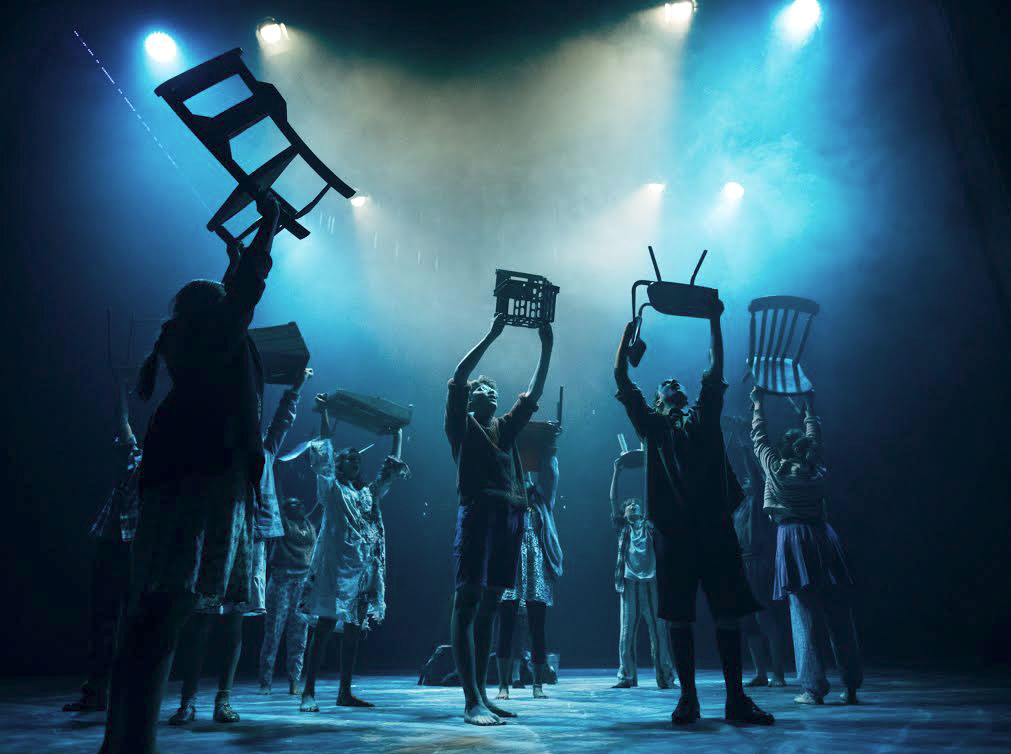Presented by thirteen talented young actors aged 11 to 17, Life Raft is a dystopian allegory that exposes the irrational fears and dark forces that lie beneath the thin and fragile veneer of civilized society. A war is raging, and a group of young British evacuees find themselves alone, trying to survive on severely limited rations. We learn that they have been abandoned by an adult world that is intent upon self-destruction. They agree on a leader, and establish a set of rules. Yet all too soon their attempts at cooperation collapse; there is conflict, a thunderstorm, superstition, savagery and violent death. So far, so very Lord Of The Flies. But this story is set not on a tropical island, but in a lifeboat.
Though there are strong echoes of Golding’s masterpiece, the origin of Life Raft is found in German playwright Georg Kaiser’s The Raft Of The Medusa, written in 1945 while he was in exile from Nazi Germany. Kaiser apparently based his play on a real event from World War II, but in this adaptation writer Fin Kennedy has stripped away any explicit references to that conflict and instead has set his version in the near future. In the original play only three of the characters are individualized, but Kennedy has given each of the thirteen a distinct personality, thus enabling him to examine a wide range of human strengths and frailties. Designer Max Johns and Sound Designer Dave Price have created a frightening world of wind and wave against which these children struggle helplessly.
Life Raft is undeniably bleak, and at times all seems futile: ‘Let’s row’- ‘Where to?’- ‘To the end.’ There is cynicism, too, as when democracy is dismissed as a system where ‘even idiots get the vote’. But we also see signs of hope for humanity. A key turning point in the play occurs when, driven by superstition, the children decide that their troubles are rooted in the fact that there are thirteen of them. What follows is a kind of dreadful balloon debate, when each of them is urged to justify his or her survival and nominate someone who should not be spared. Some of the children display callous selfishness, but others display compassion and a capacity for self-sacrifice.
Mixing stark realism, stylized mime and song, Director Melly Still has inspired all of her young cast to give wonderfully full-blooded performances. Oscar Adams is entirely convincing as Alfie, a bully who despises the weaker members of the group and who resorts to violence at every opportunity. Toby Yapp is equally impressive as Allan, the leader full of good intentions but who eventually cannot resist the rising tide of hysteria and fear that engulfs them all. Amy Kemp is outstanding as Ann, the second-in-command who perhaps most clearly sees that the greatest threat to their survival lies within themselves. It is her depth of moral insight that leaves her alone at the end, howling in despair at the darkness of man’s heart. Bleak, yes, but very powerful. ★★★★☆ Mike Whitton 5/09/15


